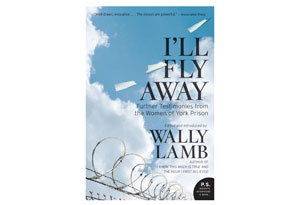Freedom Writers: Women Behind Bars Unlock Their Voices

What makes the poetry that comes from behind bars different from any other kind? Paradoxically, it's less locked-up, says novelist and longtime teacher Wally Lamb.
"Convicts' first offerings are usually the 'safe pieces,'" says Wally Lamb, who has for more than a decade taught at Connecticut's York Correctional Institution for women and has collected his students' work into two anthologies. "You know, a memory of a happy family vacation or something funny." It can take some time to get to the "tough stuff": their feelings about the past, the reality of their present, their fears about the future. "Once I saw and heard these women, I couldn't ever unsee or unhear them. Their voices are so squelched, I wanted to bring them out beyond the walls." Here, one of our favorite prison poems.
Pictures of a Daughter, Viewed in Prison
You set the photos down,
spreading time around you panorama-style.
Button-nosed baby, toddler, little girl, bigger girl:
Your eyes roam the chain of living paper dolls,
the side-by-side smiles posed just for you.
Time cannonballs you in the gut.
You think, When the hell did all this happen?
How did I miss so much?
Too late to cry, too late to mourn
the baby smell, the small heft, the music of her giggles.
The middle photos blur, become
the space between your first photo and your latest.
This is the abyss into which time has fallen.
Your reverie broken,
you gather up your painful collection and rise.
The clock reads 2:28.
Time has just stolen another hour.
—Christina Snow
Christina Snow was released from York after serving eight years for a drug-related crime. She's now a college student and is preparing for a career as a drug rehab counselor.
From the book I'll Fly Away. Compilation © 2007 by Wally Lamb. Reprinted by arrangement with HarperCollins Publishers.
More Creativity Through Poetry



